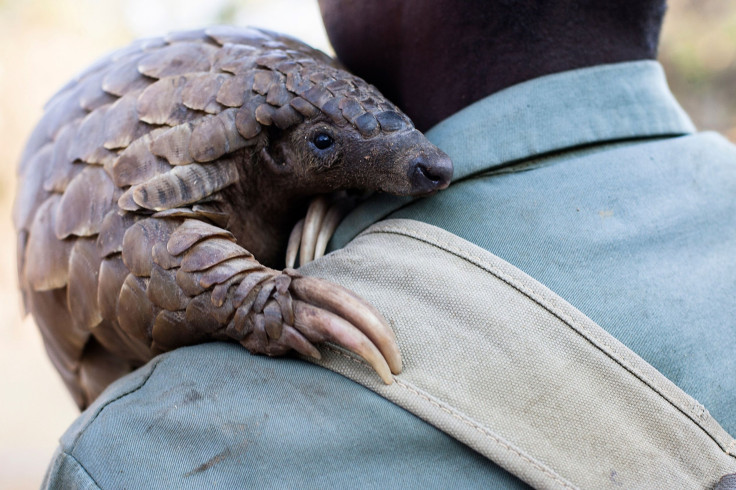Pangolin Trade Banned: World’s Most Trafficked Mammal Offered Strictest Protection

The world’s most trafficked mammal, the pangolin, which is on the brink of extinction, was offered protection Wednesday when a total ban on the trade of all species was announced during a global wildlife summit.
Over a million of the nocturnal, slow-moving creatures were poached for their meat and unique scales in the last decade for Chinese and Vietnamese markets. Poachers have plundered Africa and Asia for the mammal.
However, 182 nations belonging to Convention on the International Trade in Endangered Species (CITES) agreed Wednesday to adopt a complete ban on the international trade on all eight species at a summit in Johannesburg.
The pangolin is the only mammal in the world covered in scales which it uses for its protection. These scales are also one of the main reasons the creature is endangered. In traditional Chinese medicine, the scales are dried and roasted and used to treat excessive nervousness, hysterical crying, palsy and to help with lactation.
All global trade banned in endangered pangolins in bid to save it from extinction pic.twitter.com/4hx7QPv932
— AFP News Agency (@AFP) September 29, 2016
According to reports, from January to September this year alone, authorities have seized over 18,000 tons of Pangolin scales across 19 countries. Most illegal trade originates from Cameroon, Nigeria and Ghana. Experts said at least three or four animals are killed for two pounds of scales.
“This is a huge win and rare piece of good news for some of the world’s most trafficked and endangered animals,” Ginette Hemley, head of the WWF delegation to CITES, reportedly said. “This eliminates any question about legality of trade, making it harder for criminals to traffic them and increasing the consequences for those who do.”
Indonesia was the only country to oppose the new ban. The creature was upgraded to CITES appendix 1 of endangered species during Wednesday’s summit. This ensures that the species is offered the strictest protection possible, an essential move to save the critically endangered creature. The new ban and the upgrade will impose higher penalties on those indulging in pangolin trafficking.
© Copyright IBTimes 2024. All rights reserved.





















